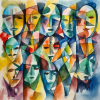Skills
-
Retention and completion in online learning: recommended strategies for improvement
Why learner support is the heart of an effective program If you are designing an online or blended program for busy professionals, the single most powerful lever you control is how you support learners. When support is strong, people are more likely to stay in the program, complete activities, and actually change what they do…
Written by

-
Richard Mayer’s research on multimedia for learning actually proves text works better
Educational technology professionals cite Richard Mayer’s 2008 study more than any other research on multimedia instruction. They are citing the wrong conclusion. Mayer did not prove multimedia enhances learning. He proved multimedia creates cognitive problems requiring ten different workarounds – and accidentally built the case for text-based instruction. What Richard Mayer actually found Through hundreds…
Written by

-
A global health framework for Artificial Intelligence as co-worker to support networked learning and local action
The theme of International Education Day 2025, “AI and education: Preserving human agency in a world of automation,” invites critical examination of how artificial intelligence might enhance rather than replace human capabilities in learning and leadership. Global health education offers a compelling context for exploring this question, as mounting challenges from climate change to persistent…
Written by

-
Taking the pulse: why and how we change everything in response to learner signals
The ability to analyze and respond to learner behavior as it happens is crucial for educators. In complex learning that takes place in digital spaces, task separation between the design of instruction and its delivery does not make sense. Here is the practical approach we use in The Geneva Learning Foundation’s learning-to-action model to implement…
Written by

-
Why an open-source manifesto for global health?
Lire la version française: Pourquoi un manifeste open-source pour la santé globale? The global immunization community is now focused on “the big catch-up”, dealing with recovery of immunization services from the consequences of the COVID-19 pandemic, as countries – and immunization staff on the frontlines – work toward the goals of Immunization Agenda 2030 (IA2030).…
Written by

-
Rising together: promoting inclusivity and collaboration in global health
The ways of knowing of health professionals who work on the front lines are distinct because no one else is there every day. Yet they are typically absent from the global table, even though the significance of local knowledge and action is increasingly recognized. In the quest to achieve global health goals, what value should…
Written by

-
Credible knowers
“Some individuals are acknowledged as credible knowers within global health, while the knowledge held by others may be given less credibility.” – (Himani Bhakuni and Seye Abimbola in The Lancet, 2021) “Immunization Agenda 2030” or “IA2030” is a strategy that was unanimously adopted at the World Health Assembly in 2020. The global community that funds and supports…
Written by

-
What is a “rubric” and why use rubrics in global health education?
Rubrics are well-established, evidence-based tools in education, but largely unknown in global health. At the Geneva Learning Foundation (TGLF), the rubric is a key tool that we use – as part of a comprehensive package of interventions – to transform high-cost, low-volume training dependent on the limited availability of global experts into scalable peer learning to improve access, quality, and outcomes.…
Written by


